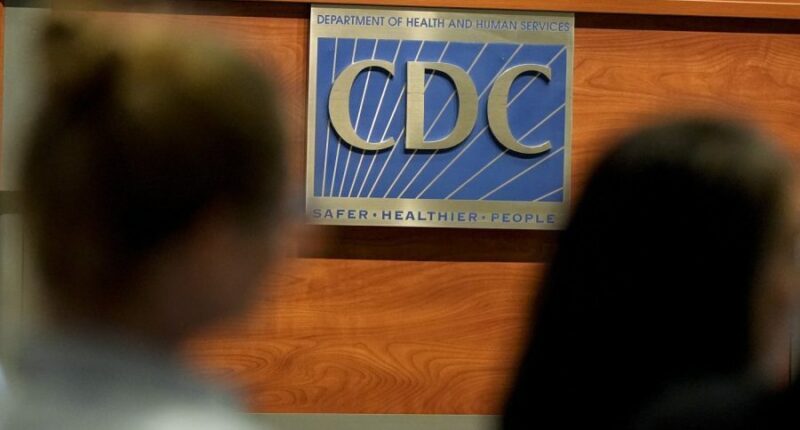Share this @internewscast.com

The advisory group for vaccines from the Centers for Disease Control and Prevention (CDC) made a decision on Thursday to postpone the delivery of the measles, mumps, rubella, and chickenpox vaccine, also known as MMRV.
Thursday’s CDC Advisory Committee on Immunization Practices (ACIP) meeting involved voting on three issues. Notably, five members were newly appointed to the committee that week.
Initially, the committee evaluated whether to recommend the combined vaccine for children younger than 4 years. The outcome was an 8-3 vote in favor of advising against the recommendation, with one member choosing not to vote.
This decision implied that children eligible for vaccination through the federally funded Vaccines For Children program would need to wait until they are 4 years old to receive the MMRV vaccine. Nevertheless, the committee later decided not to adjust the VFC program to this recommendation, thereby keeping current coverage levels unchanged.
Children can normally get the MMRV vaccine beginning at 12 months of age.
ACIP members Hilary Blackburn, Cody Meissner and Joseph Hibbeln were the three members to vote no on the recommendation.
The panel decided to delay the votes on Hep B vaccine guidance until Friday, when they will also vote on COVID-19 vaccine guidance.
The environment at Thursday’s meeting was tense, as members were conscious of the intense focus on their decision, especially following the replacement of senior CDC officials and the increased scrutiny directed at Health and Human Services Secretary Robert F. Kennedy Jr. from lawmakers.
“We are facing heated debates regarding vaccines, and an important inquiry is, who can be trusted? My recommendation is, when scientific opinions differ, trust those scientists who are willing to engage in open discussions and debate differing scientific views,” ACIP Chair Martin Kulldorff stated as the meeting began.
The core argument against allowing MMRV vaccinations under the age of 4 appeared to be the slightly increased risk of febrile seizures linked to the injections. Febrile seizures are caused by fevers of all types.
Febrile seizures are common and generally don’t cause any long-lasting effects, though members of the panel noted that they can be traumatic for families to experience. The risk is lower when vaccines are administered when a child is older.
Kulldorff argued that the risk of seizures could scare parents away from getting the MMRV vaccination.
Members of the committee who opposed the motion argued that changing the recommendation took away parents’ right to choose when and how to vaccinate their children.
Jason Goldman, president of the American College of Physicians, lambasted the motion as lacking supporting evidence and causing more confusion than benefits.
“When you make this recommendation, you now give license to insurance companies and the Vaccine For Children program not to cover this vaccine. And finally, you are taking away the choice of parents to have informed consent and discussion with their physician on what they want to do for the health and benefit of their children,” Goldman told the committee during public comments.
Others warned that this motion will cause a drop in vaccination rates.
“The disadvantage of giving two doses, or as was suggested, separating the two doses is that we know compliance falls. And the advantage of combination vaccines is that children and adults are more likely to complete the vaccine requirements if it’s given as a single dose,” Meissner said.
According to Andy Pavia, professor and pediatric infectious disease expert at the University of Utah, the immunization practices considered Thursday are “settled science.”
“This new handpicked ACIP has chosen to address issues that were relatively settled science for which there’s no new information that really suggests a need to do a detailed review,” Pavia said shortly before the vote. “And has already proposed votes that would change things even before hearing the data, and it suggests a great deal of prejudgment of the issues.”
Former CDC Chief Medical Officer Debra Houry told the Senate Committee on Health, Education, Labor, and Pensions the day before the meeting that the agenda and questions discussed by ACIP were developed almost exclusively by political appointees, with little input from scientific staffers from her agency.
According to Houry, CDC scientists had no input on the first questions which the committee voted for on Thursday, only being asked for contributions on the COVID-19 vaccine vote scheduled for Friday.
This story was updated at 6:11 p.m.










